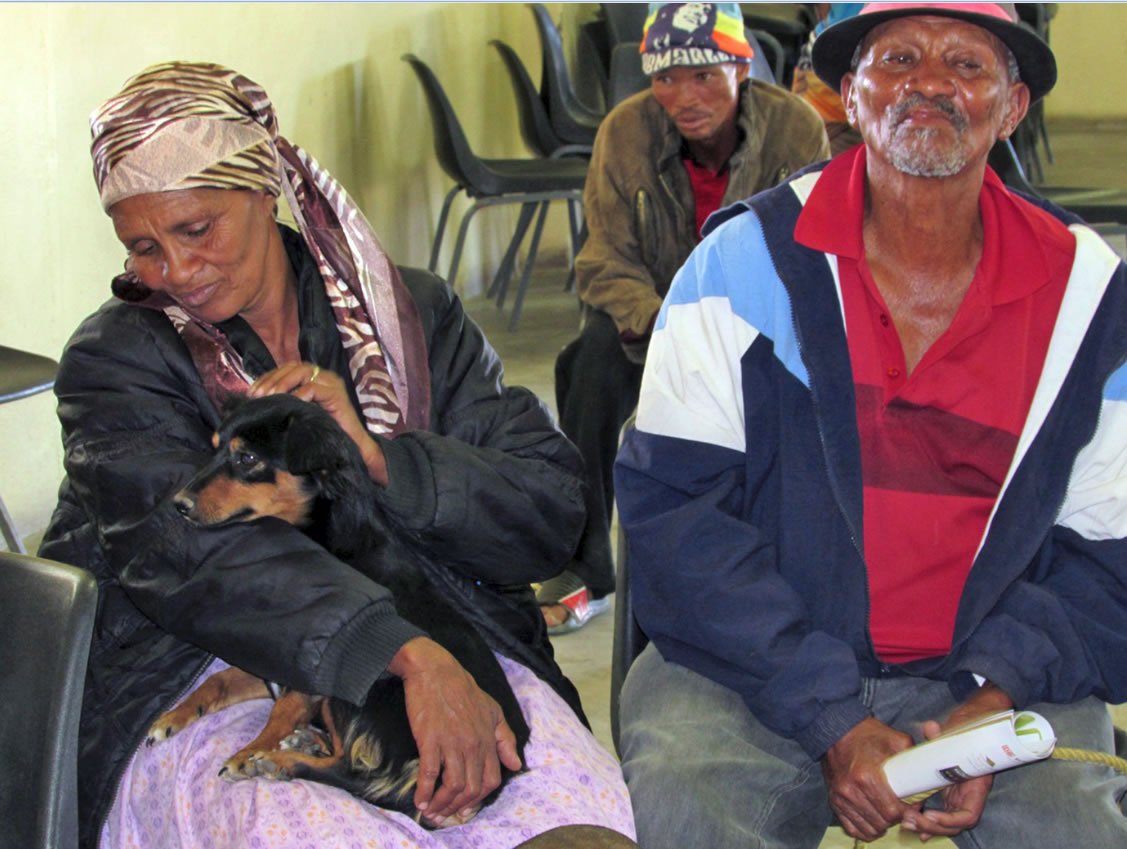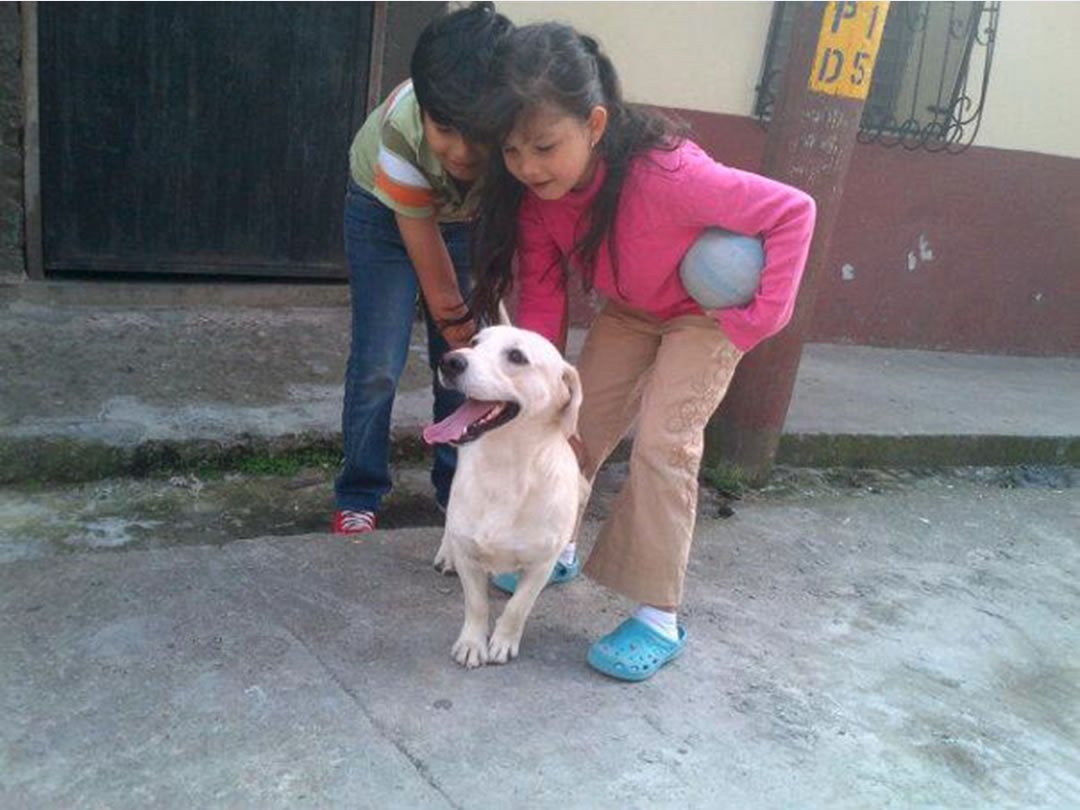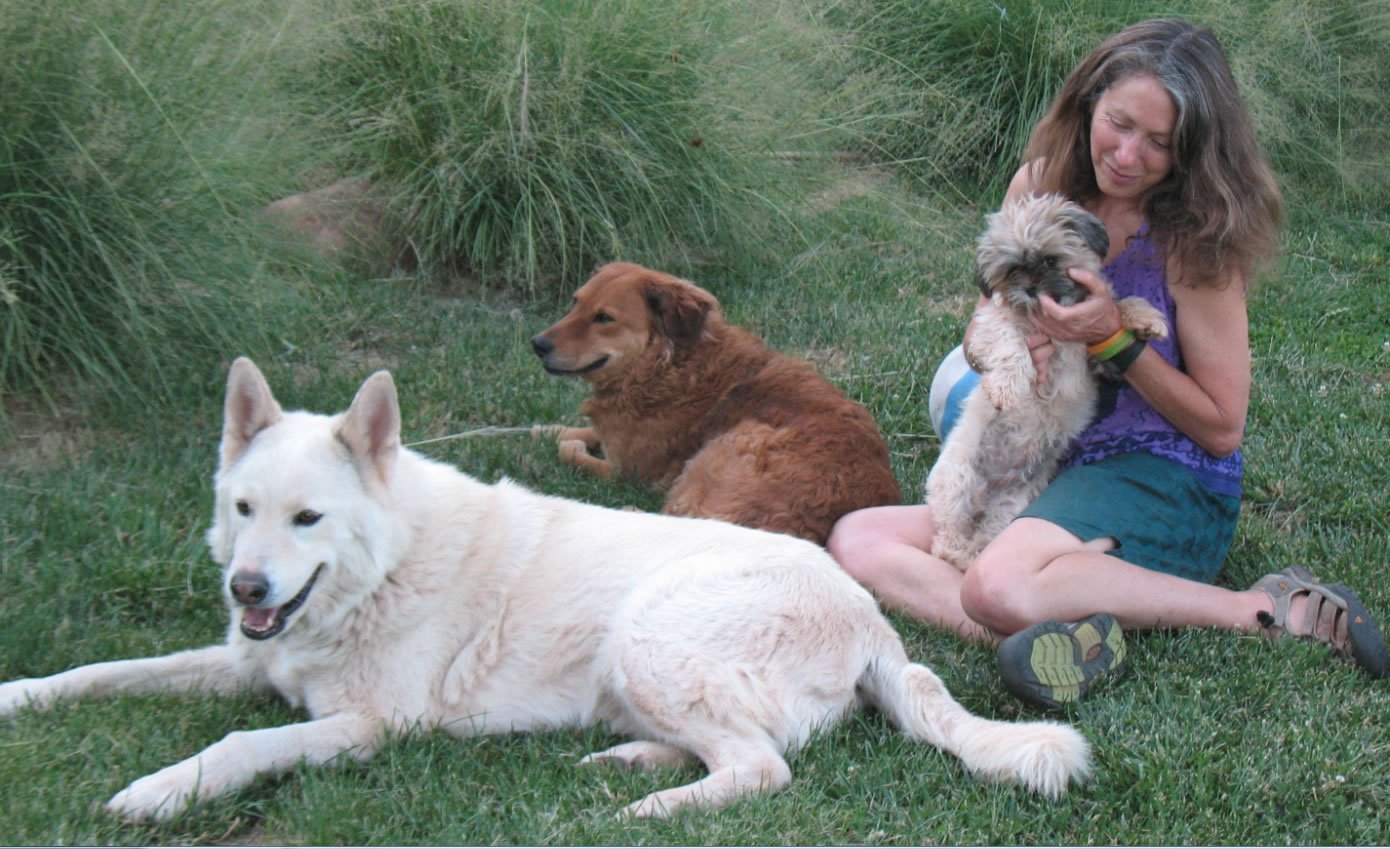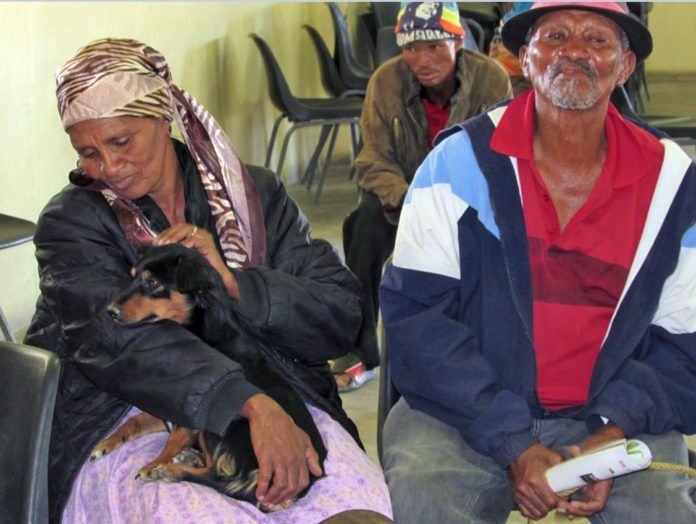bigstock

In the October 2016 issue we discussed which countries have the most pet dogs. But the more important issue is how the people in each country treat their dogs. No behavioral survey or study has been conducted that could give empirical evidence, but for a view toward a general understanding of how respectfully and lovingly dogs are treated in various regions across the globe, we spoke with Karen Menczer, founder and executive director of Animal-Kind International, a 10-year-old organization that raises money for animal welfare organizations in countries across Africa, Eastern Europe, Latin America, and the Caribbean. Menczer has also traveled much of the world outside of those regions, always with an eye toward the care and protection of dogs and other animals.
Your Dog: Is it reasonable to assume that people in more affluent nations treat their dogs better than people in poorer countries who barely have the resources to take care of themselves, let alone pets?
Karen Menczer: Economics plays into how people think of dogs, but not always in the way you might think.
Your Dog: How do you mean?
Ms. Menczer: Well, for instance, in Balkan countries like Bosnia, a lot of people are very poor, and life is really tough. Many are still recovering from the conflict that led to the split-up of Yugoslavia. So for the most part, people don’t have the welfare of dogs on their minds. And you don’t have an infrastructure that includes shelter groups and rescues and politicians who speak up for the welfare of animals, like we do in the U.S. You don’t have news on TV about a dog getting hit by a car and requiring donations, and the dog then gets 10 times more than it needs from concerned animal lovers. So for those people who do rescue animals, there’s no network to help find those animals homes. There are no transporters who will take the dogs to another part of the country for the chance of a better home.
Still, even for all those problems, for the lack of monetary resources that are needed to build a dog-friendly infrastructure, concerned people have been finding something of a solution. In several countries where people can’t afford dogs as pets — Bosnia, Macedonia, Armenia, for instance — there’s a movement to return to something they had in the past: so-called community dogs that everyone takes care of. They’re really street dogs, but organizations have been going around spaying these dogs, giving them rabies shots, and putting a yellow tag on their ear, like an earring, to let people know that although the dogs are wandering around, they’ve been taken care of. That, in turn, gets people in the community to accept these dogs, and helps to build compassion, too.
Your Dog: Wow, that sounds like a great solution for economically strapped areas — for everyone to shoulder a little bit of the burden so that no one person or family becomes too strapped in the absence of adequate shelters.
Ms. Menczer: Yes, but it doesn’t work perfectly. There’s a segment of the population who can’t stand these wandering ‘pets.’ I remember being in a section of Macedonia with a lot of cafes, and a guy just stomped on one of the dogs. It was shocking. These dogs are fairly relaxed around people because they’ve been taken care of, so some come right up to people. But this man just stomped on one.
Your Dog: That had to have been awful to watch. Do you think that if the region recovers enough for people to move ahead economically and have more of their material needs met, such cruelty to dogs will wane?
Ms. Menczer: Perhaps, but it’s not a straight line. In Africa, for instance, it’s some people in an emerging middle class who are most disdainful of dogs. Instead of being more willing to accept dogs, to bring them into their lives, their families, some of these people want everything ‘perfect.’ You don’t want to touch a dog, they think, ‘because it’s dirty.’ So with the middle class there, there comes a certain, ‘dogs are filthy; dogs are disgusting.’ It’s not true across the board. Nothing is when it comes to care and treatment of dogs. But that element is there.
Your Dog: Are there any other regions where a negative attitude about dogs prevails among people who have moved up economically?
© pudding | Bigstock

Ms. Menczer: There’s a trend that I find troubling among some people of means in Latin America, but it’s different.
Your Dog: How so?
Ms. Menczer: In some countries now in Latin America — more typically in South America than Central America, because South America is wealthier — there’s a trend toward adopting pedigreed dogs, little Chihuahuas and shih-tzus. There’s nothing wrong with wanting a pedigreed dog. Many of us learn to love dogs by having and understanding purebreeds, and that’s fine. The issue, at least as I see it, is that those with purebreeds sometimes have no compassion for street dogs. It’s like they’re two different species. And there’s not enough of a population to take in the mutts, the strays. Adopting a ‘mongrel’ from a shelter is less common there, whereas going to a breeder for a pedigreed dog has become a status symbol.
In many countries in Africa, there’s a move toward pedigreed dogs, too, but not cute little pets that you carry around.
Your Dog: Americans tend to think of Africa as such a poor continent, even though you said there’s an emerging middle class there. It’s surprising to hear that people there are breeding dogs.
Ms. Menczer: Well, they’re not vanity dogs as much as tough guard dogs, mostly German shepherds, Rottweilers, Boerboels [South African mastiffs]. These are a step up in people’s view from the local village dogs in Africa, the mutts.
Your Dog: How are these dogs treated in Africa?
Ms. Menczer: There is a lot of poverty there, even with an emerging middle class. But for all the poverty, I don’t feel Africa is crueler to its dogs than, say, Latin America, where there’s a certain macho attitude that allows for violence against woman that extends to animals. Especially in Central America right now, there is so much violence in general in countries like Honduras and El Salvador. It translates into violence against anyone, including dogs and other animals.
I’ve seen some of the cruelest behavior and attitudes toward dogs in Central America, absolutely no feeling. I’ve seen starving dogs come up to people, dogs so skinny that you can barely look at them, and people won’t even go near them — with their hands they’re, like, ‘get away.’ These are professional people I’ve met, not people in poverty. So economic status doesn’t really explain people’s behavior towards dogs. I don’t think it’s all about being poor versus not.
Your Dog: So it’s not as bad in Africa, even though some people rising through the economic ranks don’t have positive feelings for dogs?
Ms. Menczer: There are certainly problems, but it’s changing. I’ve been working in Africa since 1997. It used to be that everybody who had dogs had them as guard dogs, or maybe for herding or hunting, even if they lived in cities. Now, in Uganda’s SPCA shelter, for instance, many more people are adopting a dog — or cat — because their kids want a pet, or because they themselves do. This is a case of improved economics creating a better climate for dogs. The bigger middle class in Africa now has traveled to Europe or to the U.S., maybe studied abroad and made friends who had dogs. They got used to dogs as pets and want that relationship for themselves.
Again, it’s not across the board. I know a woman in Uganda who adopted a dog as a guard dog, but she said ‘my kids got too friendly with it, so I had to get rid of it.’ Maybe it’s a generational thing.
Ironically, sometimes poverty in Africa makes dogs part of a human family even when that wasn’t the intention.
Your Dog: How so?
Ms. Menczer: Poor people in Africa really rely on their dogs. They can’t afford to hire security guards, so if you have a dog, that’s your guardian. And the dog is with you all the time, hanging out with you while you work as well as while you’re relaxing. You’re not riding in a car away from your house, away from your place of employment. With all that close proximity, dogs can end up becoming companions even if that wasn’t the original intent.
So you go into poor areas, and people want their dogs cared for, they want them to get shots, of course rabies shots because people still do get rabies in Africa. And then they want their dogs spayed because they have come to care. They’ll tell you, ‘I’m tired of seeing puppies die.’
Your Dog: So things have really come forward in Africa.
Ms. Menczer: Yes and no. There are still people in Africa who eat dogs. It’s not country to country but tribe to tribe, or clan to clan. And sometimes the hunger is just too extreme. In Liberia, during the civil war that just ended, people didn’t have anything to eat. And in Sierra Leone, where you saw the child soldiers…
There can be a lack of understanding, too. It’s really common in East African countries to keep guard dogs in small boxes, where they can barely turn around, can’t see outside, and aren’t fed much. They’re sometimes fed hot chilies, too. If they’re hungry and angry, they’ll be better guard dogs. And they don’t get used to anyone other than the person who feeds them and lets them out at night to patrol the house, then puts them back in the box come dawn.
Horrible accidents have happened. Sometimes a kid will wander outside the house, and the dog doesn’t know the kids in the family because it’s kept in the box all the time, so he attacks the child. It can be fatal.
A lack of education comes into play as well.
Your Dog: What do you mean?
Ms. Menczer: Well, people are afraid of rabies in Africa, understandably. They might see a dog on the street and assume it has rabies, not knowing what signs to look for. So they might throw rocks at the dog. They might kill it in other awful ways. It’s the same with mange. They don’t know what mange is, so they shun dogs who have it and have lost their fur — they might beat them.
Your Dog: It sounds awful.

Ms. Menczer: It is, but mistreatment of dogs is not limited to Africa or other continents riddled with poverty and civil strife. You see it in western Europe, and you see it in the U.S. Yes, there’s a bell curve, and if the right of the curve skews toward kindness and compassion towards dogs and other animals, that’s where western Europe, the U.S., and other relatively wealthy regions are. But there are always outliers.
Not everybody in the U.K. is thrilled to have dogs in pubs, and not everybody in France is thrilled to have them in cafes. They’re not all enamored of dogs. And there’s outright cruelty. We hear about it in the U.S. often enough on broadcast news segments — dogs getting burned intentionally and other things. I knew a woman living north of me [in New Mexico] who for months was trying to help a puppy who lived at the end of a chain. She spent a lot of time trying to befriend the dog’s owner:
‘I can give this puppy water.’
‘He doesn’t need water.’
‘I can watch him if you take him off his chain for a bit.’
‘No.’
Finally, she couldn’t take it anymore and just stole the dog from the guy and found him a good home.
Your Dog: If even here in the U.S. there are so many instances of cruelty toward dogs, how can real strides be made in countries where there are so many competing concerns, concerns that are often life-or-death?
Ms. Menczer: I’ve thought about this so much over the years. When I was a girl I learned never to throw anything on the ground because of a commercial on TV — don’t be a litterbug. That has stuck with me to this day. I think the media are very powerful in helping to shape attitudes. Now the anti-litter campaign is happening in Africa. People there say to me, ‘my children are recycling everything now. They don’t let me throw anything away.’
And I think, why not for dogs and other animals? Why not have a rapper in Kenya on a giant billboard holding a puppy and saying, ‘Treating animals kindly is cool.’ People in economically marginalized regions of the world are into celebrity, just like we are. They want to be cool. They are affected by marketing. Even in poor countries they have smart phones. They go on social media. And in that sense it’s a global effort. Compassion for animals shown here in the States and in other countries can make it over the Ethernet to other parts of the world.
Your Dog: Do you really believe the media can change a dog hater into a dog lover?
Ms. Menczer: Well, to some degree it’s something you can’t be taught, which is why there are people of means who hate dogs and poor people who adore them. Love for dogs, for animals in general, is at least on some level innate. I mean, I know a very poor man in Uganda, a gardener, who loves dogs and keeps seven of them with him in his one small room. He sleeps with all of them in one bed. So I don’t know if the media can reach down and pull out that level of compassion in all people. But education through media can at least get to some kindness, to some respect for dogs. You may never learn to love them, as I imagine the readers of Your Dog do, but you can learn not to mistreat them, not to act toward them as if they don’t feel pain or have emotions — as if they’re not alive.





